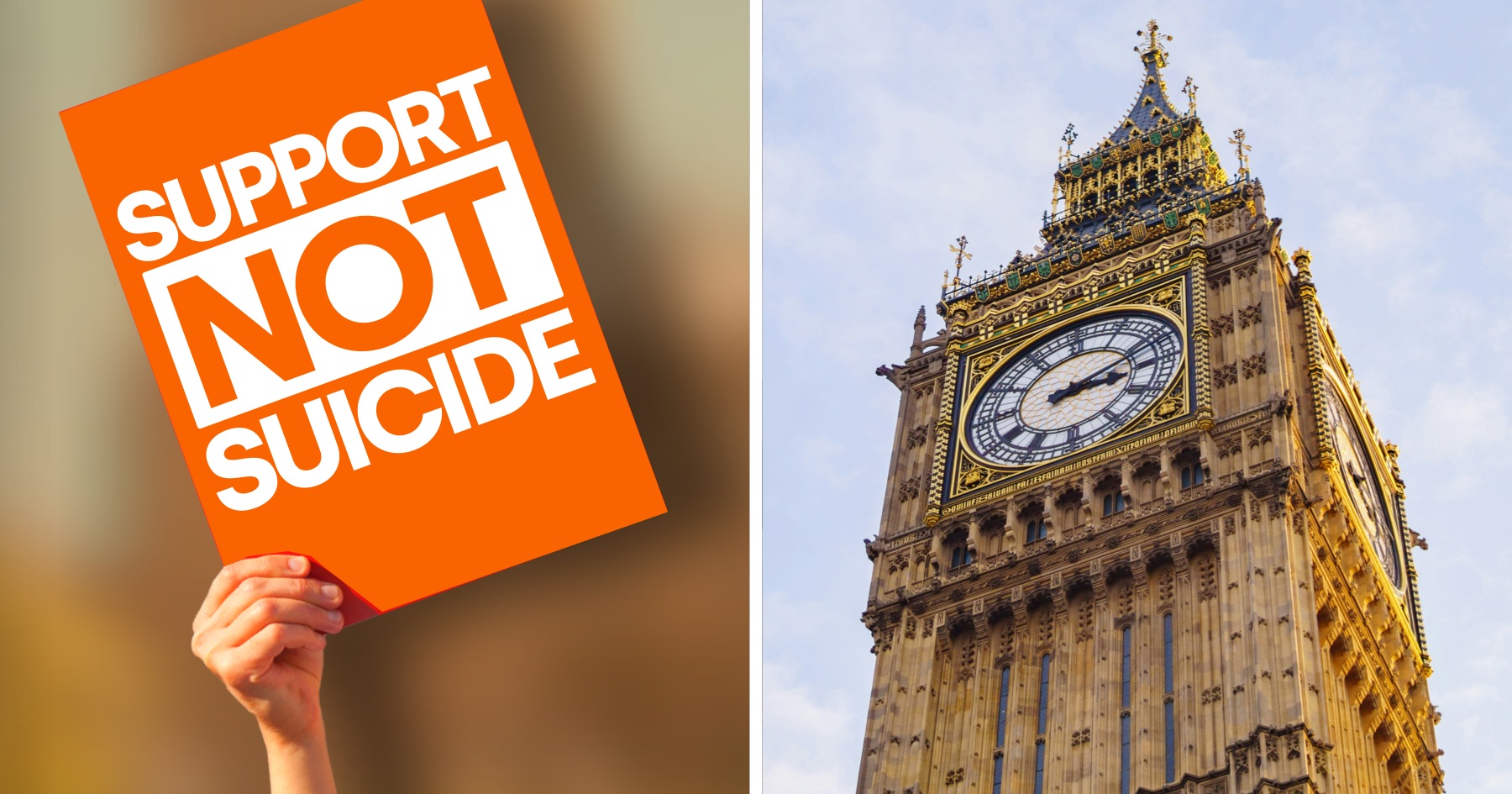PRESS RELEASE- FOR IMMEDIATE RELEASE
Campaigners redouble efforts to defeat dangerous assisted suicide Bill after it passes by narrow margin
29 November 2024 – Kim Leadbeater’s assisted suicide Bill has passed its first hurdle as MPs voted in favour of the Bill by 330 votes to 275.
A large number of MPs from across the political spectrum came together to give powerful speeches against the Bill during the debate today. They made it clear that this dangerous and extreme change to our laws would put the vulnerable at risk and see the ending of many lives through assisted suicide.
Although the Bill has passed Second Reading, the vote was far closer than commentators originally predicted and it now has a number of stages to complete in the Commons and Lords before it could become law. Campaigners have vowed to redouble efforts to ensure that the Bill is defeated.
Serious concerns remain about how this legislation would operate in practice, and the strong response from MPs across all parties shows these issues won’t simply disappear.
Campaigners have called for the Government now to provide a detailed impact assessment, outlining how this Bill would affect the NHS and our judicial system. MPs need full clarity on its real-world consequences before they are asked to vote again.
The Bill has passed Second Reading at the same time as many elderly people go into winter with their Winter Fuel Payment cut by the Government, as palliative care services are in crisis with 100,000 people dying each year needing palliative care but not receiving it, and a wider healthcare system also in a state of crisis, with Labour’s own Health Secretary describing the NHS as “broken”.
Ahead of the vote today, more than 3,400 medical professionals signed an open letter to the Prime Minister warning that assisted suicide cannot be introduced safely while the NHS is “broken”.
In particular, there has been strong opposition to introducing assisted suicide from doctors who specialise in working with people with incurable conditions at the end of their life.
A survey of palliative care doctors who are members of the Association for Palliative Medicine found that 82% oppose the introduction of assisted suicide. The results of the Association for Palliative Medicine survey have been mirrored in a more recent survey of doctors by the British Medical Association, which found that 83% of palliative care doctors oppose a change in the law to introduce assisted suicide, with only 6% supporting such a change.
A recent landmark poll reported in The Telegraph found that the public does not support making legalising suicide a priority, with the general public placing legalising assisted suicide at 22nd out of a list of 23 possible priorities for the new Government.
Spokesperson for Right To Life UK, Catherine Robinson, said:
“This is just the first stage of a long journey through the Commons and then the Lords for this dangerous assisted suicide Bill. We are now going to redouble our efforts to ensure we fight this Bill at every stage and ensure that it is defeated to protect the most vulnerable”.
“A very large number of MPs spoke out against this extreme proposal in Parliament today. They made it clear that this dangerous and extreme change to our laws would put the vulnerable at risk and see the ending of many lives through assisted suicide”.
“Serious concerns remain about how this legislation would operate in practice, and the strong response from MPs across all parties shows these issues won’t simply disappear”.
“The Government must now provide a detailed impact assessment, outlining how this Bill would affect the NHS and our judicial system. MPs deserve full clarity on its real-world consequences before they are asked to vote again”.
“This Bill can and must be defeated in Parliament. It still has a long way to go and presents an acute threat to vulnerable people, especially in the context of an overstretched healthcare system. Even members of the Prime Minister’s own cabinet recognise this problem and that, within this environment, certain people will likely be particularly vulnerable to coercion”.
ENDS
- For additional quotes and media interviews contact 07774 483 658 or email press@righttolife.org.uk
- For further information on Right To Life UK visit www.righttolife.org.uk


